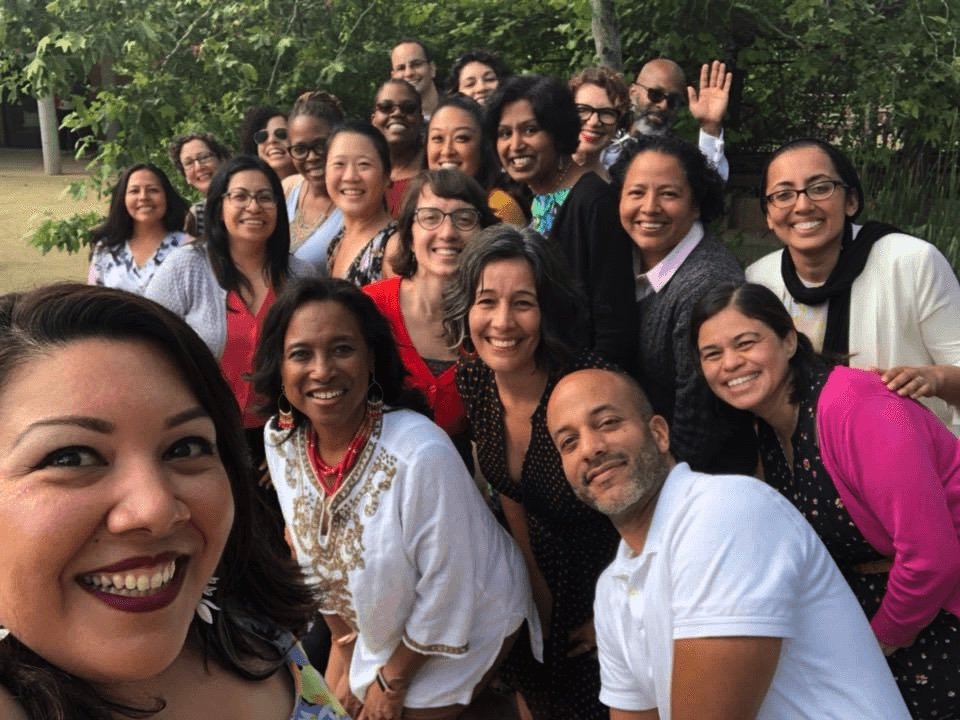About Liberatory Coaching and Love Letter to the Movement
What is Liberatory Coaching?
Liberatory Coaching is listening, seeing, feeling, and sensing in multiple dimensions to someone's essence and what they are being called to evolve into. It has the Liberatory Coach self-reflect and do their own work around transmuting their individual and generational trauma, nurturing clear boundaries, and being able to show up with a deep and authentic presence. It puts healing as a continual and evolving process, sees a transformative and compassionate justice as integral to a world that we want to create, and celebrates the little moments of liberation on the path to big liberation. Liberatory Coaching invites one into connection with all of our relations, cousins, siblings, and neighbors. It invites us into relation with Self.
Love Letter to the Movement is the textbook and love note for Coaching for Healing Justice and Liberation’s 9-month certification program. We wrote it for folks who are:
BIPOC
Movement leaders such as community organizers, teachers, executive directors, spiritual leaders, healers, program officers, program directors, cultural workers, consultants, prison abolitionists, and circle holders
Open to connecting with Spirit and Ancestors
Willing to deeply engage in relation to an anti-systemic oppression analysis, self-reflection, and healing trauma in a multi-racial, gender expansive space
Interested in Liberatory Coaching and want to know what it is all about
Attended another coaching school in which you felt that analysis of systemic oppression, energetic boundaries, and/or spirit and ancestors left you wanting.
Learn more about our coach training programs at Coaching for Healing, Justice, and Liberation and our sibling program inside California prisons, Coaching for Healing and Non-Violence.
Testimonials From our program
“Something broke in me, in and through this process. And the questions that you posed, I was like, "what are these questions?" and something snapped. Maybe it was the configuration of the three of us. I just want to notice and acknowledge that we have been in a decolonization process since the moment we decided to join this cohort. And some things are emerging in me, personally, that are so deep and profound that I scarcely have the words. But I do know that there is something around a profound sense of presence, a radical honesty that is coming forth. Something around conjuring a sense of home and welcome. What does it mean to hold that space for one's self first and that this work starts from the inside out? And what does it mean now to be emerging as a new thing? I don't know if anyone else is going through this, but I feel like I'm in chrysalis. There are some things breaking down inside of me that I'm becoming liquid and the form I once had is gone and I am becoming something new. I don't know what that all means, but it does feel like decolonization, because you can't put shackles on water, can you?”
— Márquez Rhyne
“We're so skilled at dealing with intergenerational trauma and the trauma we encounter on a daily basis. And we're so skilled at incorporating that into the way we do business and go about life. The tenderness and the love here and the invitation to take a breath and to rest in a practice of decolonizing is almost too much to bear in a way. That's the precipice you feel us on right now. For me, it feels that way. The breaking is such an apt way to describe it. I feel like I'm on the edge of the pool. Like I don't know, we get invited to do this a lot, but not in safe spaces. And here is this space, that is everybody gets each other.”
— Gaye Theresa Johnson, associate professor of Chicana/o and Central American Studies and associate director of the Ralph J. Bunche Center for African American Studies at UCLA
